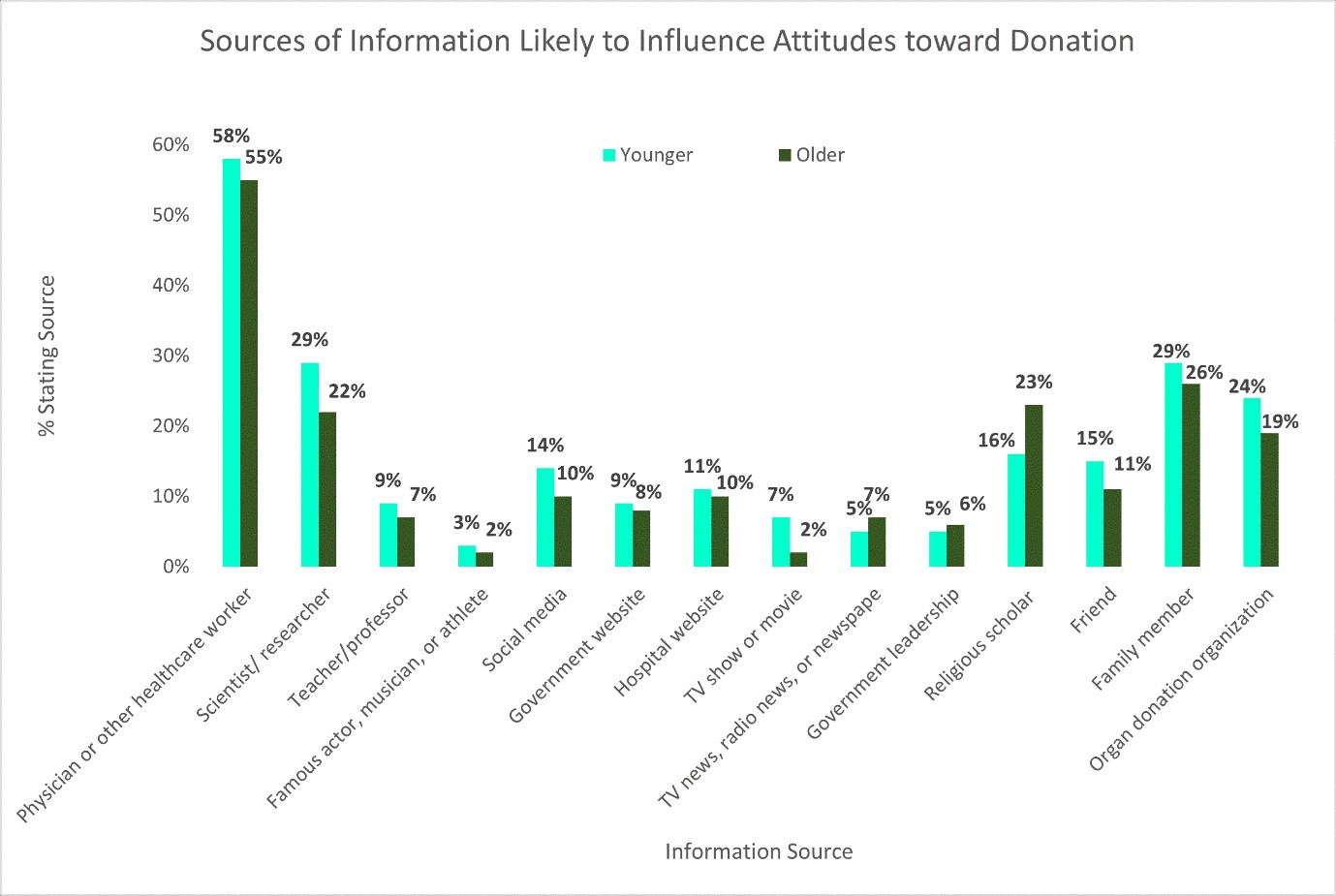Attitudes Toward Organ Donation in Arab-Based Population
1Scientific Department, Sharik Association for Health Research, Riyadh, Saudi Arabia, 2CEO, Saudi Center for Organ Transplantation, Riyadh, Saudi Arabia, 3College of Medicine, Alfaisal University, Riyadh, Saudi Arabia, 4Medical Department, Saudi Center for Organ Transplantation, Riyadh, Saudi Arabia, 5Department of Medicine, King Faisal Specialist Hospital and Research Center, Riyadh, Saudi Arabia, 6Comprehensive Transplant Center, Johns Hopkins University, Baltimore, MD, 7Division of Gastroenterology & Hepatology, Johns Hopkins University, Baltimore, MD
Meeting: 2022 American Transplant Congress
Abstract number: 1204
Keywords: Donation, Living donor, Outcome, Public policy
Topic: Clinical Science » Organ Inclusive » 70 - Non-Organ Specific: Disparities to Outcome and Access to Healthcare
Session Information
Session Name: Non-Organ Specific: Disparities to Outcome and Access to Healthcare
Session Type: Poster Abstract
Date: Sunday, June 5, 2022
Session Time: 7:00pm-8:00pm
 Presentation Time: 7:00pm-8:00pm
Presentation Time: 7:00pm-8:00pm
Location: Hynes Halls C & D
*Purpose: Commitment to organ donation may vary among willing younger and older adults. We aimed to understand attitudes toward organ donation among Arab adults.
*Methods: We conducted a cross-sectional survey of a representative sample of adults from 13 regions in Saudi Arabia between 2/12/2021-3/14/2021. We stratified the analyses by individuals age (younger 18 to 39 years old and older ≥40 years old). Of 4,217 individuals contacted, 3,120 respondents (1,846 younger and 1,274 older) completed the survey, a response rate of 74%.
*Results: We found 54% of younger and 47% of older respondents expressed support for organ transplantation, and 49% of younger and 35% of older respondents wanted to donate their organs. However, only 4% younger and 3% older respondents had registered in the national donor database. Knowledge sources that most likely to influence attitudes toward organ donation for younger and older respondents, respectively, were physician/healthcare worker (58% and 55%), family member (29% and 26%), scientist/researcher (29% and 22%), and religious scholar (16% and 23%). While many younger and older adults express willingness to donate, few are registered to be a donor.
*Conclusions: Our findings highlight the influential sources of knowledge that can be implemented in future interventions to increase commitment toward organ donation.
To cite this abstract in AMA style:
Almubark RA, Alghonaim M, BinDhim NF, Attar B, Abaalkhail F, Ammary FAl, Alqahtani SA. Attitudes Toward Organ Donation in Arab-Based Population [abstract]. Am J Transplant. 2022; 22 (suppl 3). https://atcmeetingabstracts.com/abstract/attitudes-toward-organ-donation-in-arab-based-population/. Accessed February 16, 2026.« Back to 2022 American Transplant Congress

